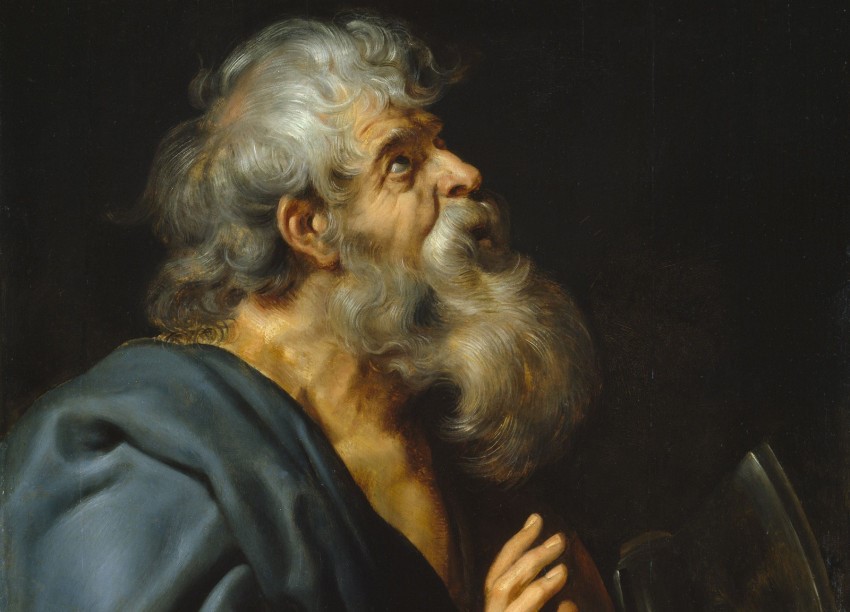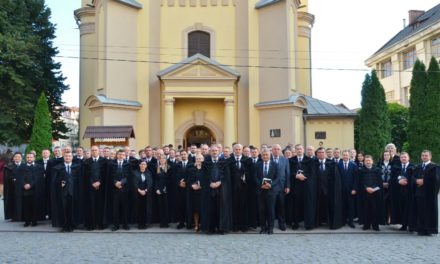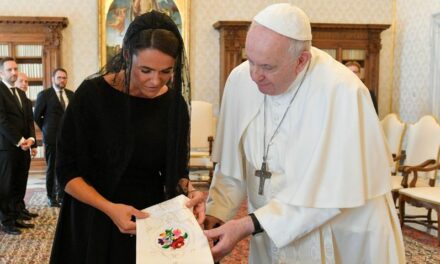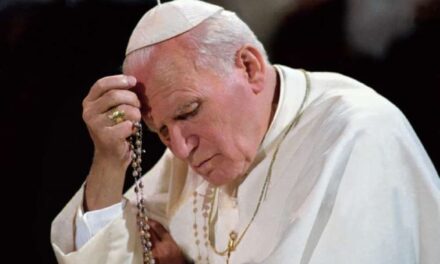After the resurrection of Jesus, before Pentecost, Matthias was chosen as an apostle instead of Judas. We remember him on his feast day, February 24.
Lukács handed down to us Peter's speech (cf. Acts 1:15–26), in which he argued: "Therefore, it is necessary that of those who were always with us when our Lord Jesus walked among us, from the baptism of John to the day of his ascension , let someone bear witness to his resurrection with us." Two candidates were nominated who met this condition: Barnabas and Mátyás. Fate fell to Mátyas. Since the criterion of selection was that the apostle must be a witness of the resurrection, Matthias probably met the resurrected Christ.
Mátyás' further fate is unknown. According to the apocryphal Acts of András and Mátyás, when the mission territories were distributed, he was sent to "the country of cannibals", probably Ethiopia, where he was blinded and imprisoned, but God restored his sight and András miraculously freed him.
He allegedly suffered a martyr's death by beheading. For this reason, he is usually depicted with a bard, and Christian butchers and carpenters chose him as their patron saint. In addition, confectioners, tailors, blacksmiths ask for his protection, and, as in general, the apostles, he is also the patron saint of theologians, religious teachers, and missionaries.
His relics were taken by Empress Ilona to Trier in the 4th century, where they are still venerated in the basilica of St. Matthias Abbey.
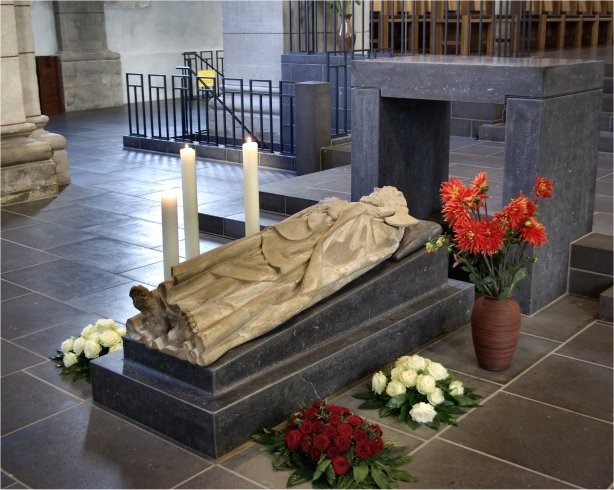
Tomb of Saint Matthias in Trier
Weather regulations are linked to Matthias Day across the country. "Mátyás spoils if he finds it (= he melts, breaks the ice), if he doesn't find it, he makes it (= if he can't find any more ice, he greets us with ice cream).
The instrument of the apostle Matthias' martyrdom and thus his iconographic emblem is the chariot or bard. The imagination of the people created a connection between the saint's feast and the approaching spring: as it were, the chariot of the apostle breaks the power of winter. There was a joke in Csíkszentmárton that if the ice did not start, then Mátyás would sharpen the icebreaker's pickaxe for a few more weeks. Among the famous sayings of András Dugonics, we read: "He gropes like a fox on ice after Mátyás."
Source full text: Magyar Kurír

